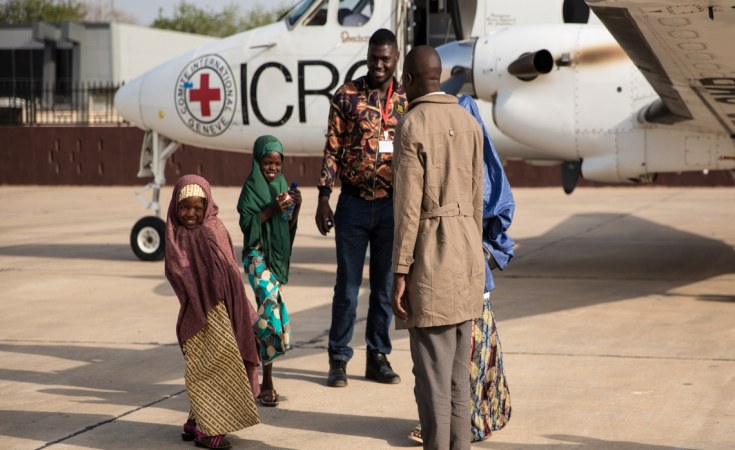After more than a decade of conflict, thousands of families are missing loved ones across northeast Nigeria. Many have never given up hope. Now, some are seeking to help others.
"A missing person is not like a death," Ahmed Kyari says.
"With a death, after the grieving process, a person can continue their life. But this is an ambiguous loss. There is no end. People cling between hope and despair. So, they need somebody. They need support."
Ahmed is part of an ICRC team in northeast Nigeria's Maiduguri that works to support families of the missing.
This 'accompaniment' program that Ahmed works on seeks to help families of the missing cope and continue their lives - and then to help others with similar lived experiences.
We've registered around 25,000 people in Nigeria as missing due to more than ten years of conflict.
For us, this is the largest caseload of missing people in Africa. But it's likely just a fraction of the total number.
These are some of the stories from families of the missing - and the 'accompaniers' that seek to support them.
I like to sit down with families of the missing and help them get through trying times
Aisha's brother went missing nine years ago in Nigeria's northeast Borno State.
Their home was attacked, and he was lost - alongside others who sought safety.
"No one knows his whereabouts," Aisha tells us.
Not knowing the fate of a loved one can cause a lot of pain. Aisha was so stressed, she couldn't sleep.
Now, as part of the ICRC 'accompaniment' program, she can channel her experience to help others.
"It is good to show them that their life is important too," Aisha says.
As she tells us: "hope is not lost".
We didn't know our voices would be heard until we got involved in the ICRC's 'accompaniment' program for families of the missing.
Kashim's sister sold her TV to help pay for his school fees.
More than a decade ago, she went missing from their home in Maiduguri, northeast Nigeria.
She is my only family, except for my mum," Kashim says. "I would love her to come back, even at age 70.
Kashim describes the distress he and other experience when a loved one is lost. Some shut themselves off from others, find it hard to go to the mosque or market, or enjoy things they love, like movies or football.
But now Kashim finds ways to cope through music, prayer and helping others. After joining the ICRC 'accompaniment' program, he's found a way to give back to the community.
"I can now counsel people with similar troubles," Kashim says. "And I am ready to counsel more people."
I lost two nephews in 2013... Since they went missing, we have been traumatised.
Losing loved ones can also leave an increased burden on those family members left behind. The loss of his nephews has meant Umara is now the primary caregiver for others in his family.
To help cope with the loss, we invited Umaru to participate in a program that seeks to support families of the missing.
"We have a forum of people with similar troubles where we share stories that help us to reduce tension, learn from each other's coping techniques and solutions," Umara says.
"We have also established a connection and share in our grief, joy and blessings... We still enjoy life."
We believe if there is life there is hope.
At different times in the course of the conflict in northeast Nigeria, Mohammed has been separated from both his brother and father.
He was eventually reunited with his father. But his brother's fate remains unknown.
"We have not been able to see or hear any story of him," Mohammed says.
Mohammed registered both missing cases with the Nigerian Red Cross Society and later joined our program that supports families of the missing. Later, he became an 'accompanier' - and now helps others.
"The program holds sessions that helps families to cope and live normal lives," Mohammed says.
Each of these stories is unique. But the voices here are far from alone. Thousands of families across Nigeria are still searching for missing loved ones.
If you need help locating family lost due to conflict or violence, you can call us on +234 0800 5000 4000.
In this way, we seek to help all communities across Nigeria, as we do around the world.


